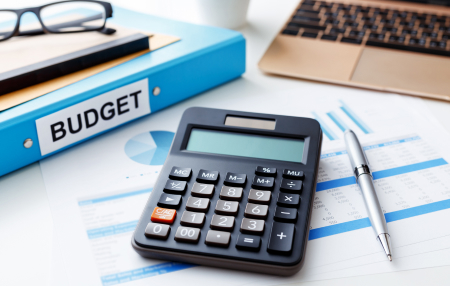
When it comes to your finances, the best thing you can do is be prepared. No matter how well you think you are doing, unexpected bills can still crop up. As we near the halfway point in 2024, the UK cost-of-living crisis is still ongoing. And although down on last year, average energy bills are still set to be high at £1,690 this year.
While it was announced in May 2024 that the UK was officially out of recession, current global uncertainty means the threat of another downturn is very real. With this in mind, understanding what recession means for your finances (and debt), as well as being able to properly budget and prepare for a future economic downturn is essential.
In this guide, we outline the ways in which recessions can impact your personal finances, focusing specifically on your debt. We also provide a selection of simple tips to help you out of the red and in the black during a recession.
What happens to debt during a recession
During times of a recession, incomes typically decrease in real terms while expenses remain the same. Similarly, as incomes shrink, personal debts tend to increase. On top of this, job losses and salary stagnation also become far more common. With less (or no) income to cover your repayments, difficulty in repaying loans becomes more of a reality during times of recession when compared with times of economic boom.
For this reason, maintaining debt payments as best as you can during a recession is essential. It can also help to stick to a well-thought-out paydown strategy. However, this can be much easier said than done.
How to manage your debt during a recession
Managing debt during a recession requires proactive steps. Start by thinking about prioritising your essential expenses. After this, taking steps such as actively negotiating payment plans with your creditors and exploring refinancing options for lower interest rates can also be sensible ideas. As we will discuss below, building an emergency fund and creating a realistic budget can also be effective tools to help you manage debt during a recession.
That being said, if you’re still struggling with overwhelming debt caused by a recession, it’s important to remember that debt management solutions could also be a good option. For example, a Debt Management Plan (DMP) could allow you to consolidate debts into more affordable monthly payments, helping you get through a tough recession. Similarly, Individual Voluntary Arrangements (IVAs) and Debt Relief Orders (DROs) can also provide individuals with more manageable repayment structures, as well as the possibility of partial debt write-off after a certain period of time.
To explore these options further, get free debt management advice by visiting MoneyHelper. Alternatively, get in touch with us to find out more about how one of our debt management solutions can help you.
How to budget during a recession
Cut back on non-essentials
There are lots of things that we might consider essential when things are good, but when tightening the belt, aren’t really necessary.
Cutting back on the streaming services or finally looking at downgrading your phone contract (do you really need unlimited data?) can help. There are always some hidden costs you may have missed, which is why it’s important to regularly review your monthly budget. If there are non-essentials that feel essential to you, try and look for cheaper options, maybe that’s switching your gym membership to somewhere cheaper, or switching that special bottle of red on the weekend for a cheaper option.
Finding a balance on where to cut, and defining what is essential to you, is a good way to ensure you’re sticking to any financial changes.
Capitalise on some hidden money
If you have any assets that can be sold off—such as antiques or jewellery—now is the time to see what they’re worth. You’d be surprised how much joy your dust collectors will bring to new hands. Maybe your old watch could find a new home on Facebook Marketplace, or your old games console might still have some life (money) left in it. If you’re lucky enough (or smart enough) to have some assets that have appreciated in value, Pokémon card collectors, we’re looking at you, this might be a good time to sell them off and start to bolster the savings account while clearing out your storage space.
Start saving now
Though the first half of 2024 hasn’t been easy, recent headlines make it clear that the winter months are going to be tough on household budgets this year. As we head into Autumn it’s important to start putting aside some extra cash when possible.
The best way to do this is by setting up automatic deposits into an investment account. That way, once the recession is over and interest rates start rising again, you’ll have built up enough savings to ride out the next downturn.
Obviously, this won’t work for everyone – especially those who don’t have any extra cash lying around, or who don’t earn enough to make regular deposits into an investment account. If you do have extra cash, or can find ways to earn more, invest that money as soon as possible so that it can grow in value over time, without getting eaten up by inflation or taxes during the next recessionary period.
Be prepared for change. There’s no telling how long this recession will last or where our finances will be once it ends.
Cut down the weekly shop
Find out how much you have spent on groceries for the past few months and then make a list of everything you buy each month. This will help you figure out what you spend on food each week and how much money you will need to set aside for your grocery expenses each month. It’s important that you have enough money at the end of each month for groceries, but it’s also important not to overspend on them, leaving no money for other things like gas bills or rent payments.
If you’re trying to cut back on your spending, look around for quick wins. For example, instead of buying coffee every day at Starbucks or Costa Coffee, you could make your own at home. Meal prepping and bulk buying are also great ways to get full control of your grocery spend, while also cutting some costs in the process. These simple shopping habits are easy to get into and once they become part of your routine, you’ll see your monthly spend coming down as a result.
Make extra cash in your spare time
With the introduction of E-commerce and online stores, it’s easier than ever to turn your creations or hobby into a small business. Many have taken to starting an online business or monetizing their hobbies creating Ecommerce or selling through independent sites like Etsy or offering their services on Fiverr. You’d be surprised how easily your hobby or skills can be used to make some extra cash.
If your money troubles are becoming serious, it’s important to get expert help and speak up as soon as possible. Getting ahead of your debts can be the difference between fixing your finances and further debt troubles.

